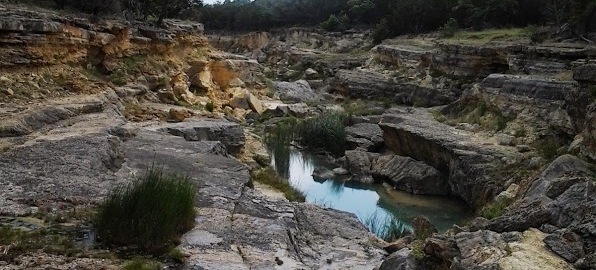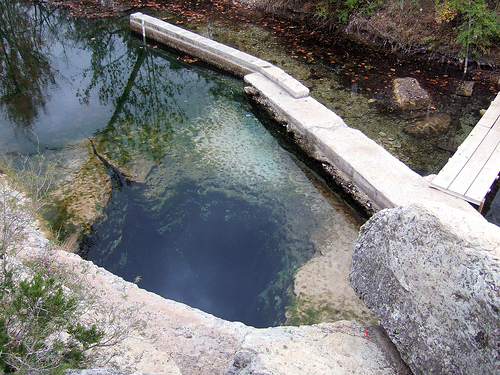
I recently discussed the Trinity Aquifer economy as it parallels the Divine Trinity’s economy. I wasn’t the first to say that a fountain, a spring, and flowing water are a picture of the Triune God. Even in the Old Testament God is likened to a spring of salvation:
“Therefore you will draw water with rejoicing from the springs of salvation, and you will say in that day, Give thanks to Jehovah; call upon His name! Make His deeds known among the peoples; Remind them that His name is exalted.” -Isa. 12:3-4
In this post I’ll address two further points on the Texas water economy as it relates to the Divine Economy.
When Wells Run Dry
“Now on the last day, the great day of the feast, Jesus stood and cried out, saying, If anyone thirsts, let him come to Me and drink.” -John 7:37
The population of Texas is estimated to double in the next fifty years. Currently there are around 25 million people in Texas. What’s the problem with another 25 million moving in? There’s not enough water for all of us.
The two-and-a-half million residents of the Texas Hill Country feel the issue perhaps most poignantly. There simply is not enough water in the Hill Country’s aquifer systems to support another 2.5 million mouths.
The issue isn’t helped by the state government, and it’s not hard to see why. Imagine that you made a dinner for seven friends but then fourteen came to eat. Who could you send away? This is the major issue facing state legislators today. In a global recession nobody wants to turn potential economic development away. In fact, Texas’ recent immunity to the housing bubble crash is in large part due to its friendly history toward new development. But more immigrants mean more drinking straws, and more straws in the ground mean the aquifer will be taxed until it’s drawn dry. Project forward fifty years and the Hill Country – with its live oaks, junipers, and rustic charm – will all but dry up. Check out this video, which is also on my last post, for an explanation of the limited water resource of central Texas.
For me, Texas’ diminishing water supply paints a clear picture: everything in human life runs out. Every earthly joy runs out. Every natural love fails. Eventually, every man dies. Man, who was made with an eternal longing in his heart, is subject to an existence leading to death. The only recourse of hope to such an oppressive fate is with God. When all a person’s wells dry up they need another source from which to draw. The Bible says that this source is from Jesus Christ alone.
“Everyone who drinks of this water shall thirst again; but whoever drinks of the water that I will give him shall by no means thirst forever, but the water that I will give him will become in him a fountain of water gushing up into eternal life.” -John 4:13-14
Becoming Stewards of the Divine Economy
But I need to go on. Just as Texas legislators are exercising prudence to make a water conservation plan to ensure their state’s vitality throughout the next fifty years, I have been aware recently of the need for faithfulness and prudence in the stewardship of the Divine Economy. I’d like to end this post with two practical points on carrying out our stewardship:
1. In order to carry out our stewardship, we need to utilize the time we have on earth. For this God needs to teach us to number our days that we may gain a heart of wisdom (Psa. 90:12).
2. In order to carry out our stewardship, we need to be unhindered by other preoccupations. If we have tasted of the water that Jesus gives us, we will eventually drop our preoccupations and will testify of Jesus to those we know. -John 4:28-29 (quoted below)
“Then the woman left her waterpot and went away into the city, and said to the people, Come, see a man who told me all that I have done. Is this not the Christ?”






